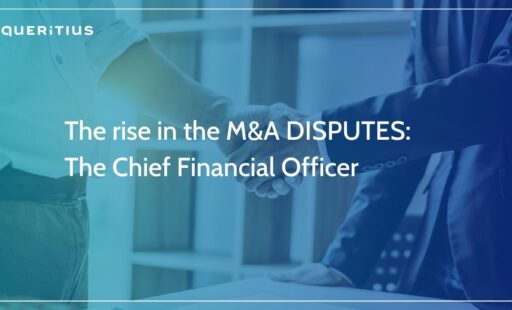The rise in M&A disputes and what to do about it: The Chief Financial Officer

13. 01. 2024
M&A (mergers and acquisitions) disputes are about the money, predominantly about issues related to the target’s accounts and finances. This means that most often, the chief financial officer of the target company becomes the key witness, being the person responsible for the preparation of the financial statements and management accounts.
In our experience, we have seen the following recurring patterns:
➡️ The target is a family business, and the founders and owners are also the company’s directors until the transaction. Post-sale, the buyer decides to keep one of the founders as the CFO to maintain business continuity. When a dispute emerges, the buyer gets into a disadvantaged position, as the detailed knowledge of the relevant facts is with the CFO, who now becomes an adverse party.
➡️ The target has an arms-length board of directors, and the CFO resigns shortly after the transaction, in anticipation of her/his replacement by a trusted person of the buyer. In such circumstances, the CFO frequently does not wish to be involved in the dispute between the seller and the buyer, especially if it may concern their own acts and/or omissions while at the company.
➡️ The target has an arms-length board of directors, and the buyer fires the CFO on the grounds of perceived incompetence (sometimes after the buyer discovers the accounting errors that are the basis of the arbitration claim). The CFO is likely to become openly hostile to the buyer and actively take sides with the seller.
➡️ The target is ‘dressed-up’ for the sale by the sellers, who replace a family board of directors with a professional one before the transaction, who buy their loyalty by promoting young people to managerial positions and/or offering an important transaction bonus. If the buyers decide to keep them in the company, they may face a split-loyalty syndrome on the part of the CFO, sometimes with unpredictable and unmanageable consequences.
➡️ The target has an arms-length board of directors, the buyer keeps the CFO and buys her/his loyalty. The CFO actively takes sides with the buyer.
While the above list is simplified and non-exhaustive, it provides an overview of the critical role of the CFO in a post-M&A dispute and highlights certain risks and mitigation strategies that the parties may consider in advance. In the next posts of our series, we will be suggesting some ideas to address these problems.
By Wojciech Sadowski
